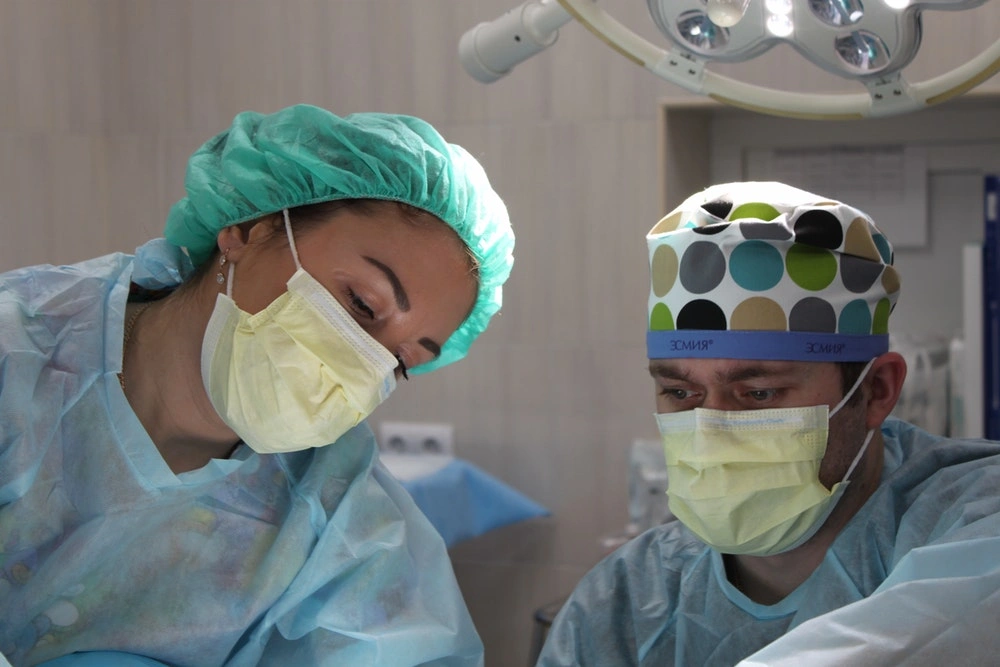Surgeons are some of the most important and well-paid specialists in the field of medicine. According to some estimates, approximately more than 53,000 surgeons are currently working in the United States in 2021 alone. However, despite this seemingly high number of surgeons in the country, experts claim that the US will face a shortage of as many as 23,000 surgeons by 2032.
This makes it important to discuss not just medical ethics, but also the duties and requirements of the different types of surgeons. This article will not only share what the average plastic surgeon’s salary is but also the required training if you want to be a civil surgeon.
What is a Surgeon?

A surgeon, like all doctors, are bound by the Hippocratic oath. This is the famous pledge that begins with “Do no harm.” However, they differ from other doctors with their specialty.
Surgery refers to physical medical procedures that are needed to identify a disease, fix or extract damaged tissues or enhance the functionality or appearance of someone’s body.
Surgeons are some of the most highly paid physicians in the country but that also means they are among the most regulated and highly trained individuals in medicine. Many surgeons are often called out to different hospitals, especially if they are specialists and have a lot of experience in their fields.
In terms of legal definition, only six states have statutes that officially define who or what is a surgeon. These states are New Hampshire, West Virginia, Virginia, Florida, Wisconsin and Minnesota.
A further 17 states have administrative codes that define what a surgeon is. These states include Kansas, Alaska, Nevada, Arizona, Montana, Wyoming, Louisiana, Alabama, Mississippi, Illinois, Indiana, Ohio, Pennsylvania, Maine, Rhode Island, New Jersey, Maryland and Delaware. This doesn’t mean that the remaining states allow just anyone to call themselves surgeons. It just means that most of the onus is on the state’s regulatory bodies rather than legislature.
How are Surgeons Classified?

Just like all types of medical professionals, surgeons are differentiated into categories. These categories exist to provide doctors and schools an easier way to pick specialties and offer training. Take note that the classification of surgeons does not cover the classification of surgical procedures. For example, a civil surgeon can be just as likely to focus on facial surgery as obstetrics.
-
By Purpose
The most common way surgeons are classified is by the purpose of the surgical procedures they specialize in. One of the most commonly known branches of the field is plastic or reconstructive surgery which deals with altering or restoring the appearance of body parts. Another is neurosurgery, a very complicated branch that deals with repairing the nervous system, including the brain.
-
By Location
Another way surgeons can be classified is by the general area of the body they perform surgery on. This is because certain organ systems are more concentrated in some areas than others. For example, a surgeon specializing in nose lifts, eye shaping and chin implants can be considered a facial surgeon. This isn’t as common a way to designate specialties and isn’t generally used by medical organizations.
What are the Requirements to be a Surgeon?

Surgeons begin their training the same way as any other doctor. All doctors begin by taking a 4-year bachelor’s degree, sometimes not related to medicine, before embarking on 4 more years of medical school. After graduating from medical school, would-be surgeons can look forward to an average of 6 years working as a medical resident.
Surgeons are also required to be patient, enduring and dexterous. Operations can last anywhere from an hour to an entire day, depending on the procedures. Surgeons need to make quick and detailed movements with their hands, such as clamping blood vessels and making quick incisions.
Aside from these physical skills, a surgeon also needs more specialized training. Other than their residencies and medical school, would-be surgeons can look forward to an extra two years of education or surgical rotation to give them more time to hone their skills with the scalpel. For example, an aspiring heart surgeon may need to train and observe surgeries with more established heart surgeons to learn the ropes.
What are Some Types of Surgeons?

If you are considering a career as a surgeon, there are many different types of specialties you can explore.
Oculoplastic surgeons perform life-saving operations on eyes. Plastic surgeon salaries derive from helping people achieve their ideal appearances.
Below are some of the types of surgeons you may be interested in training for.
-
Plastic Surgeon
Responsibilities: Plastic surgeons are tasked with reconstructing, altering or enhancing people’s physical appearance. While most often associated with procedures like face lifts, breast implants and rhinoplasty, plastic surgeons can also provide other services like helping fix cleft palates, reconstructing faces after an accident and helping burn victims recover their confidence in their appearance.
Salary: Plastic surgeon salaries are among the most lucrative in the medical industry. Their average salary is usually a little over $400,000. However, like with all professions, there are some variations. Plastic surgeons at the lower end of the spectrum can make $340,000 while top surgeons or those popular with famous clients can make more than $500,000 a year.
-
Oculoplastic Surgeon
Responsibilities: Oculoplastic surgeons are responsible for procedures in and around the eye area. They aren’t the same as ophthalmologists who perform surgeries on the eyes themselves. Instead, they are plastic surgeons who can fix the brow, your tear ducts, the eyelids and even reconstruct the orbital bones around the eyes.
Salary: Oculoplastic surgeons have a wider range of salaries than plastic surgeons as they tend to be more specialized. This means that they could have more profitable careers depending on the opportunities in the area. The salary for oculoplastic surgeons in the United States can vary from $54,000 to almost $800,000. The average is approximately $261,000.
-
Trauma Surgeon
Responsibilities: Trauma surgeons specialize in fixing injuries from traumatic events. People who have survived car crashes, gunfights and other severe incidents are usually sent to trauma surgeons for help. This means that they need especially strong stomachs and mental fortitude to withstand the expected states of patients on their tables.
Salary: Trauma surgeon’s salaries are usually higher than the average surgeons as their specialization is highly sought after by hospitals and especially organizations like the army. The higher end of the spectrum sometimes reaches almost $500,000 and the lower earning salary of a trauma surgeon can still be over $360,000.
-
Civil Surgeon
Responsibilities: A civil surgeon is a doctor who looks into the well-being of immigrants into the country. Aside from regular medical training and certification, they must also be credited and cleared by Immigration Services. Civil surgeons can look into infectious diseases to ensure immigrants are healthy. They may also perform examinations on immigrants who require medical attention.
Salary: Civil surgeons are employed by the state and federal governments. Thus, their salary grades can vary from state to state. However, they are sometimes high earners, depending on the budget of the state involved.
Surgery is one of the most well-paid but also most complicated fields in medicine. However, most aspiring surgeons need to think about more than just the salary of a plastic surgeon. They must also consider the training and effort involved in their prospective field.

